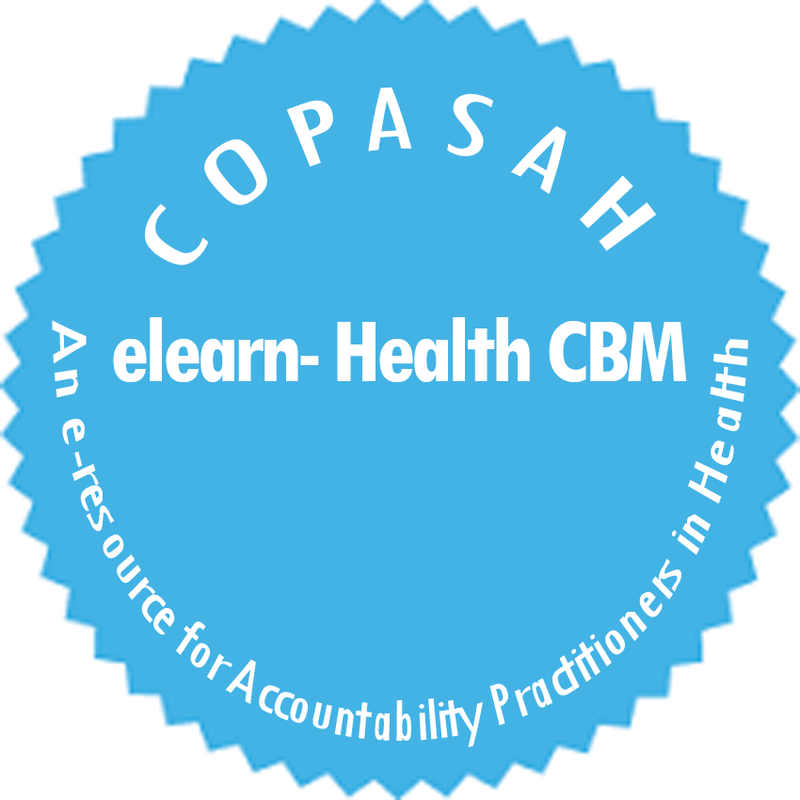
|
|
In Conversation with Barbara Kaim
Barbara Kaim is the Global Steering Committee member of COPASAH and is a key affiliate of East and Southern African region of COPASAH. E Premdas Pinto from the editorial team had the following email interview with her.
|
Aminu Magashi Garba
|
|
How have you been involved in COPASAH in the recent past?
I was fortunate to witness the birth of COPASAH. I was a participant in the historic meeting held at Johannesburg in July 2011, where COPASAH came into being. The meeting brought together 39 practitioners from across 12 countries. All the practitioners had experience in health rights, community monitoring, budget monitoring and expenditure tracking. The meet was an exciting space to share our knowledge and experiences in the field of accountability and community monitoring in health. This enabled us to think creatively about the future and one of the outcomes was formation of this network. Since then I have represented my organisation, the Training and Research Support Centre (TARSC) in the COPASAH global steering committee, in association with TARSC colleagues and especially Rene Loewenson, also a COPASAH founder. In addition, I’ve taken the lead in certain aspects of work that we are carrying out in the East and Southern African regions, with the Uganda National Health Consumers Organisation (UNHCO) as regional coordinators. |
Community members in Cassa Banana, Zimbabwe discussing their roles in the newly formed Community Health Committee
|
Can you mention some key activities that helped in getting people involved in COPASAH in Eastern and Southern Africa?
Over the last year, TARSC has been working with COPASAH and the Regional Network on Equity in Health in East and Southern Africa (EQUINET) to strengthen the use of participatory approaches in building community roles in accountability and action. EQUINET has been involved in this area for over a decade. Its work highlighted the importance of access to resources, especially in ensuring that meaningful resources reach the primary care and community level. Given the wide social inequalities in our region, we wanted to explore ways to strengthen people’s voices and roles in decision-making in the health systems, and in the access and use of health services.
These issues motivated us to hold a regional meeting at Zimbabwe in October, 2013. The meeting was hosted by TARSC in association with COPASAH and EQUINET. There were 30 participants from Kenya, South Africa, South Sudan, Tanzania, Uganda, Zambia and Zimbabwe. Many participants were hearing about COPASAH for the first time.
The training focused on the use of an approach called Participatory Reflection and Action (PRA). In this, community members affected by problems actively participate in gathering, organising and reflecting on their own experience and generate evidences to identify actions, particularly those actions which people can take themselves' to produce change.
Following the regional meeting, TARSC has been providing technical support to organisations in Zimbabwe and Tanzania in exploring how PRA approaches can position the discussion on accountability and initiate a dialogue between communities, frontline health workers and local authorities. The organisations involved – Zimbabwe Association of Doctors for Human Rights, Zimbabwe National Network of People Living with HIV, Health Promotion Tanzania and Ifakara Health Institute (IHI) – and these have been reporting regularly about their work on the copasahconnect e-list.
What was the response from practitioners on the initiatives and idea of COPASAH?
There’s been a great response. Our regional membership has increased to 81 and the geographic spread too has widened. It has led to deepening of the debate on the link between social accountability and community empowerment in our region. The discussions have focused on the need to view community monitoring as part of a larger process That starts with building an informed health-literate community which is able to interact with health service personnel to jointly design, implement and monitor plans and budgets for the health system at the primary care level.
This in turn potentially allows for improved transparency, better dialogue between rights holders and duty bearers, and the establishment of platforms for feedback and consultation. We hope these discussions will be taken up at a wider level throughout COPASAH globally.
Could you summarise key achievements and challenges as COPASAH in your region?
In addition to what I’ve mentioned earlier, I would say the socio-economic and political environment in our region presents powerful contextual factors to motivate both community monitoring and social accountability work and also makes it more difficult, especially where there are resource constraints and a lack of political will on the part of duty bearers to engage with community concerns.
Despite these challenges, we are fortunate to have in East and Southern Africa a strong civil society with a wide range of experiences in interacting with public officials which is trying to build more people-centred health systems.COPASAH is already working with a number of such groups, especially through the EQUINET family, serving to broaden and strengthen our work.
How can we increase solidarity through COPASAH?
Well, one, this newsletter is a good way to share stories, experiences and build a sense of community. I’d encourage everyone to visit the COPASAH website and source the interesting publications available there.
Information-sharing is just one way of building solidarity. Ultimately, our commitment is to those at the community level who do not have a voice and whose rights are being ignored or abused. Despite differences in the ways which various regional groups are working in COPASAH and differing cultural contexts, we are linked by the similar struggle to make those in power – whether state or private sector – more accountable to the majority. We need to work more on developing strategies to achieve this. Our membership should be used to support community voices and to play roles in shaping, implementing and monitoring the policies and performance of the state, and in shaping perspectives on the options for change.
We also need to build alliances with other organised groups around the world not only in the field of health but also in related sectors like environment and gender. This would create a stronger movement committed to ensure that the states’ promises of meeting the needs of its citizens are fulfilled.
This is a challenging set of targets for COPASAH. I look forward to being a part of this challenge, in solidarity with other members of our Community…. and beyond.
Over the last year, TARSC has been working with COPASAH and the Regional Network on Equity in Health in East and Southern Africa (EQUINET) to strengthen the use of participatory approaches in building community roles in accountability and action. EQUINET has been involved in this area for over a decade. Its work highlighted the importance of access to resources, especially in ensuring that meaningful resources reach the primary care and community level. Given the wide social inequalities in our region, we wanted to explore ways to strengthen people’s voices and roles in decision-making in the health systems, and in the access and use of health services.
These issues motivated us to hold a regional meeting at Zimbabwe in October, 2013. The meeting was hosted by TARSC in association with COPASAH and EQUINET. There were 30 participants from Kenya, South Africa, South Sudan, Tanzania, Uganda, Zambia and Zimbabwe. Many participants were hearing about COPASAH for the first time.
The training focused on the use of an approach called Participatory Reflection and Action (PRA). In this, community members affected by problems actively participate in gathering, organising and reflecting on their own experience and generate evidences to identify actions, particularly those actions which people can take themselves' to produce change.
Following the regional meeting, TARSC has been providing technical support to organisations in Zimbabwe and Tanzania in exploring how PRA approaches can position the discussion on accountability and initiate a dialogue between communities, frontline health workers and local authorities. The organisations involved – Zimbabwe Association of Doctors for Human Rights, Zimbabwe National Network of People Living with HIV, Health Promotion Tanzania and Ifakara Health Institute (IHI) – and these have been reporting regularly about their work on the copasahconnect e-list.
What was the response from practitioners on the initiatives and idea of COPASAH?
There’s been a great response. Our regional membership has increased to 81 and the geographic spread too has widened. It has led to deepening of the debate on the link between social accountability and community empowerment in our region. The discussions have focused on the need to view community monitoring as part of a larger process That starts with building an informed health-literate community which is able to interact with health service personnel to jointly design, implement and monitor plans and budgets for the health system at the primary care level.
This in turn potentially allows for improved transparency, better dialogue between rights holders and duty bearers, and the establishment of platforms for feedback and consultation. We hope these discussions will be taken up at a wider level throughout COPASAH globally.
Could you summarise key achievements and challenges as COPASAH in your region?
In addition to what I’ve mentioned earlier, I would say the socio-economic and political environment in our region presents powerful contextual factors to motivate both community monitoring and social accountability work and also makes it more difficult, especially where there are resource constraints and a lack of political will on the part of duty bearers to engage with community concerns.
Despite these challenges, we are fortunate to have in East and Southern Africa a strong civil society with a wide range of experiences in interacting with public officials which is trying to build more people-centred health systems.COPASAH is already working with a number of such groups, especially through the EQUINET family, serving to broaden and strengthen our work.
How can we increase solidarity through COPASAH?
Well, one, this newsletter is a good way to share stories, experiences and build a sense of community. I’d encourage everyone to visit the COPASAH website and source the interesting publications available there.
Information-sharing is just one way of building solidarity. Ultimately, our commitment is to those at the community level who do not have a voice and whose rights are being ignored or abused. Despite differences in the ways which various regional groups are working in COPASAH and differing cultural contexts, we are linked by the similar struggle to make those in power – whether state or private sector – more accountable to the majority. We need to work more on developing strategies to achieve this. Our membership should be used to support community voices and to play roles in shaping, implementing and monitoring the policies and performance of the state, and in shaping perspectives on the options for change.
We also need to build alliances with other organised groups around the world not only in the field of health but also in related sectors like environment and gender. This would create a stronger movement committed to ensure that the states’ promises of meeting the needs of its citizens are fulfilled.
This is a challenging set of targets for COPASAH. I look forward to being a part of this challenge, in solidarity with other members of our Community…. and beyond.
|
|
ABOUT AUTHORS
Dr Aminu Magashi Garba is a medical graduate and holds a masters degree in Public Health from the London School of Hygiene and Tropical Medicine. He was Executive Director of the Nigeria-based NGO Community Health and Research Initiative from April 2002 to December 2009.
He currently works with a DFID-funded project “Evidence for Action in Nigeria on Maternal and Newborn Health” and also coordinates a national coalition of civil society organisations and media, 'Accountability for MNCH in Nigeria,' that strives to promote accountability and transparency in improving services via advocacy, use of annual scorecards for MNCH and budget-tracking. He is also the regional lead of the Africa Health Advocacy Network (AHBN) comprising committed individuals, media and organisations in Africa, which promotes health budget accountability, participation and transparency.
To know more about the work done by AHBN , please CLICK HERE.
Dr Aminu Magashi Garba is a medical graduate and holds a masters degree in Public Health from the London School of Hygiene and Tropical Medicine. He was Executive Director of the Nigeria-based NGO Community Health and Research Initiative from April 2002 to December 2009.
He currently works with a DFID-funded project “Evidence for Action in Nigeria on Maternal and Newborn Health” and also coordinates a national coalition of civil society organisations and media, 'Accountability for MNCH in Nigeria,' that strives to promote accountability and transparency in improving services via advocacy, use of annual scorecards for MNCH and budget-tracking. He is also the regional lead of the Africa Health Advocacy Network (AHBN) comprising committed individuals, media and organisations in Africa, which promotes health budget accountability, participation and transparency.
To know more about the work done by AHBN , please CLICK HERE.








